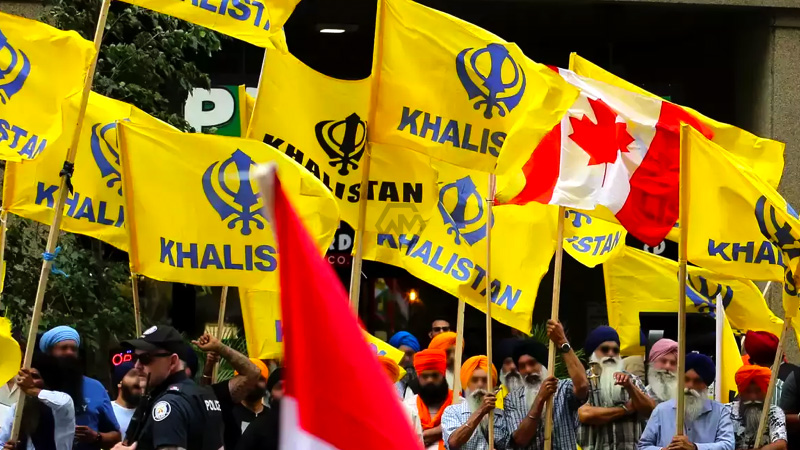- Sikh activists in the U.S. and Canada report increased threats and harassment.
- Investigations continue into the killing of a Sikh leader linked to Indian intelligence.
- FBI and Canadian police have warned Sikh leaders about potential dangers.
In the year since Canadian Prime Minister Justin Trudeau suggested Indian government involvement in the assassination of Sikh separatist leader Hardeep Singh Nijjar, Sikh activists in North America have faced a significant uptick in threats and harassment.
The growing concerns about transnational repression have led to heightened security measures for Sikh activists, with many fearing for their safety.
North American Sikh Activists Targeted Amid Allegations of Indian Government Involvement
Sikh activists in the United States and Canada are facing a surge in threats and harassment, a year after Canadian Prime Minister Justin Trudeau implicated the Indian government in the killing of a Sikh separatist leader. The most prominent case involves Dr. Jasmeet Bains, the first Sikh American elected to the California Assembly, who has reported over 100 threatening messages and surveillance outside her home since her advocacy for recognizing the 1984 anti-Sikh violence in India as genocide.
The FBI and Canadian police have been actively involved, issuing warnings to Sikh leaders and urging them to take security precautions. These developments come amid broader concerns of “transnational repression,” where foreign governments target their political opponents living abroad. Sikh activists, especially those advocating for a separate Khalistan state, have been at the forefront of these threats, highlighting the reach of foreign influence on North American soil.
Investigations in both countries have led to the prosecution of Indian nationals, with charges ranging from conspiracy to murder. The ongoing trials have further strained relations between the Sikh diaspora and Indian authorities. While India has denied any involvement in the targeted killings and attempted assassinations, the evidence presented in court cases has fueled suspicions and fears within the Sikh community.
This atmosphere of fear has prompted Sikh activists to alter their daily routines, with many adopting stringent security measures. The situation underscores the complexities of global politics and the vulnerabilities faced by diaspora communities who engage in political activism. The ongoing investigations will likely have significant implications for diplomatic relations between India and both the United States and Canada.
The increasing threats against Sikh activists in North America are a stark reminder of the dangers faced by diaspora communities when they challenge powerful state actors. As investigations continue, the focus remains on ensuring the safety and security of those targeted by transnational repression.
“The campaign represents a kind of worst-case scenario for transnational repression — when a major state acts completely outside



